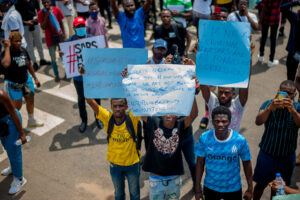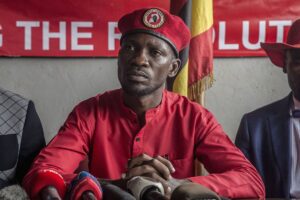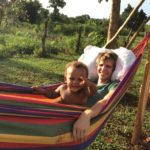Minds of the Movement
An ICNC blog on the people and power of civil resistance
by Phil WilmotJanuary 25, 2021
While Black Lives Matter took center stage in the global media, similar struggles against police brutality were fomenting in the Sub-Sahara as well. 2020 was truly a year of protecting black bodies.
In many African countries, authoritarian leaders enjoyed the Covid-19 pandemic and the excuses it offered for violent repression. In Uganda, for example, not a single Covid-19 death was registered until July 23. By that date, a half dozen Ugandans had been killed by police using pandemic conditions as an excuse for brutality, and countless citizens had been unjustly arrested, victimized by extortion, tortured, and otherwise abused.
Millions of Africans rose up to protect their communities against police brutality in 2020. Here are some brief highlights on a few of the recent struggles against policing in Africa:
#EndSARS
Nigeria, the most populous African country and home to about 200 million people, rose up against The Special Anti-Robbery Squad (SARS).
SARS—accused of normalized extortion, extrajudicial killings, and other abuses—has long been notorious among Nigeria’s youth. Similar to the multiplication of various Black Lives Matter protests, this rage finally hit a tipping point when videos of SARS brutality went viral and brought tens of thousands to Nigeria’s streets. During one protest, members raided Covid-19 palliative storage centers to redistribute what foods and supplies hadn’t been given to them. “Sadly, most of the foods were already rotten,” said activist Chidinma Ijele Chikwelu.

Protesters rallying against The Special Anti-Robbery Squad (SARS) in Lagos, Nigeria. October 13, 2020. Source: Kaizenify via Wikipedia
Protests were mobilized in part by an array of popular celebrities, musicians, and artists who called for SARS’ disbandment. When Inspector General of Police Mohammed Adamu announced the dissolution of SARS, he also declared the creation of Special Weapons and Tactics (SWAT). No one was duped by this.
Nigeria’s Feminist Coalition raised the stakes by offering global fundraising and accountability infrastructure that facilitated a cash flow for the growing movement. This scaled the depth and breadth of #EndSARS protests across Nigeria.
Following an instance of unprovoked shooting by Lagos police, which resulted in no less than 11 deaths, members of the decentralized #EndSARS struggle are still surveying and experimenting with their strategic options, including forming a political party and changing the form of protests.
East Africa
East Africa—and Kenya and Uganda specifically—has been a hotbed for protest against police brutality since pandemic lockdowns began.
Kenyans maintain a protracted struggle against unfathomable levels of extrajudicial killings. On July 7, 1990, Kenyans marched against Daniel arap Moi’s despotic rule in what became known as Saba Saba Day (or, seven-seven day, for July 7). In recent years, the tradition of marching on Nairobi has been revived, and despite the Covid-19 outbreak, 2020 was no exception. Grievances were compiled and members of social justice centers dispersed across the neighborhoods of Nairobi gathered together to submit their demands to end police brutality and expand political space that has been squelched by President Uhuru Kenyatta.
Uganda—Kenya’s next-door neighbor to the west—saw serial arrests of opposition candidates ahead of this month’s presidential election. Opponents were rounded up repeatedly for conducting campaigns that are theoretically legal in Uganda. Pop musician Robert Kyagulanyi Ssentamu, known colloquially as Bobi Wine, has led the nascent People Power movement that enjoys popular support among youth in the world’s second-youngest population. Many of his supporters have been killed, including a driver and bodyguard, and dozens of youth across the country.

Ugandan political, singer, actor, and leader of People Power, Our Power movement was arrested for protesting irregularities in recent elections. Source: @teddyeugene via Twitter
One particular arrest of Bobi Wine led to mass uprisings in the capital city Kampala, but activists, celebrities, and political leaders in other opposition parties also sounded the alarm against President Yoweri Museveni’s 35-year military dictatorship. The Museveni regime shutdown internet during and after elections to facilitate vote-rigging and human rights abuses with a greater degree of impunity, and to curtail opposition mobilization.
Nana Mwafrika, a survivor of police brutality who lost her uterus at the hands of police assailants, has been regularly arrested, tortured, and surveilled by the state over the course of lockdowns. Authorities cracked down hard when Mwafrika protested the government’s failure to distribute food to the needy after securing a half-billion-dollar loan from the International Monetary Fund to manage Covid-19.
Stella Nyanzi, a recent political prisoner and protest figurehead, has spoken out against police brutality and the abuse of sexual minorities and sex workers in her constituency.
From pandemic to justice
While states have used the Covid-19 pandemic as an excuse to accelerate police brutality and iron fist rule, unarmed citizens of the same countries have risen up to push for greater freedoms and secure justice, even where political conditions have long been undemocratic.
In Guinea, which is in the middle of a protracted struggle against dictatorship, anti-brutality protests led by mothers began in late 2019. Organized labor in Zimbabwe continues to coalesce multi-industry demonstrations against increasing tyranny. From Angola to Senegal, Africans are shedding off fear and amassing power against policing and despotic politics. Pandemic conditions continue to ignite the “enough is enough” sentiments that will continue rising into 2021.
Join the conversation on Twitter @civilresistance, hashtag #ICNC2020Top10
Check out our "Top 10 Civil Resistance Stories of 2020, Looking Forward" countdown, with new posts rolling out every Monday from December 14, 2020, through February 15, 2021.

Phil Wilmot
Phil Wilmot is a former ICNC Learning Initiatives Network Fellow, co-founder of Solidarity Uganda, and a member of the Global Social Movement Centre and Beautiful Trouble. Phil writes extensively on resistance movements and resides in East Africa. Write to Phil at phil@beautifultrouble.org.
Read More